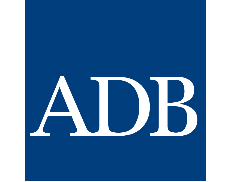| |
|
Objectives
The Project aims to setup a high quality, flexible, and responsive MLT system which meets industry
needs.
The proposed project components and associated outputs are Output 1: TVET quality improved and
capacity developed. This component will (i) develop an integrated MLT system that provides
integrated curriculum linking vocational secondary, college, and undergraduate levels of TVET; (ii)
implement a competency-based approach (CBA) to curriculum, instruction, and assessment in priority
areas across different majors and course levels; (iii) upgrade teacher skills through pre-service
and in-service professional development; (iv) upgrade assessment and quality assurance based on
industry standards; (v) develop curriculum in entrepreneurship and employability skills; and (vi)
develop a TVET teacher training center. The project will develop curriculum and teaching materials
including digital content. Output 2. Chengbi campus constructed and environmental sustainability
promoted. The component will construct Phase II teaching and residential buildings and facilities
in the new Chengbi campus. The component includes the construction of 12 buildings with a total of
160,693 square meters building area. A 3.86 million kilowatt hour (kWh) photovoltaic power system
will be installed, and campus roads, sport facilities, slope protection, and other school
facilities constructed. Teaching and lab equipment for the new campus will be financed by domestic
funding. The Green Sustainability Center will ensure development and sustainability of green
principles in campus management, curriculum development, and community outreach. Output 3: TVET
Innovation and relevance promoted. The component will support strengthening school-industry
partnerships, expanding regional cooperation activities and implementing strategic research. It
will (i) enhance industry participation in management and delivery of curriculum and assessment;
(ii) provide staff opportunities for industry visits, assignments, and training attachments; (iii)
promote integration and enhancement of short-term migrant training into MLT; (iv) develop a
regional cooperation management team and activities; and (v) conduct research on enterprise-TVET
partnerships, emerging priority sectors, and future course and qualifications needs. Output 4:
project implementation management. This component will support capacity building for the project
management office (PMO) and TVET institutions in project management, monitoring, and evaluation to
ensure efficient and effective project implementation in compliance with PRC and ADB requirements.
Scope of Services
The project will provide funding for 30 person-months of international and 82 person-months of
national consultants to support the development of MLT institutional, leadership, human resources,
and employment information systems; improve the quality of TVET curriculum and teaching and promote
staff development; and promote TVET innovation and relevance.
A consulting firm will be engaged by the QCBS method to provide an estimated total input of 30
person-month of international and 82 person-months of national consulting inputs. The consultants
will work with Baise Municipal Government (BMG), BPMO, Baise University–the implementing agency,
and other relevant agencies for the MLT capacity building and innovation program. This will include
an appropriate mix of formal and informal training delivery including workshops, seminars, study
tours and on-the-job training, to be provided directly by the consultants, under locally arranged
training contracts, or through approved in-country or overseas study activities. Detailed
activities will include, but not necessarily be limited to:
1).An integrated MLT system that provides curriculum integration through a sequence of learning
outcomes that link the current SVS, vocational college, and undergraduate levels of TVET.
2).Establishment of an employment information system to support students work placements through
responsive programs and courses.
3).The development of a communication and outreach strategy to promote understanding and support
for the MLT system.
4).A competency-based approach (CBA) to curriculum, instruction, and assessment that is applied to
priority areas.
5).An improved quality assurance system that is based on industry standards in the design and
delivery of relevant training.
6).Upgrading of both pre-service teacher training and in-service professional development programs.
7).Support for the development of leadership through Core Teachers and Managers training courses.
8).A comprehensive workshop program for teachers and other stakeholders, focused on key TVET
concepts (e.g. MLT system, CBA, and quality assurance) and their application to priority areas and
instructional delivery.
9).Support for domestic and/or international visits to provide exposure to and participation in
TVET best practice examples.
10).Staff opportunities for active engagement in industry visits, assignments, and training
attachments.
11).Enhanced industry participation in the governance of TVET and the delivery of curriculum and
assessment.
12).Cooperative activities between Baise University, Education Bureau, and HRSSB to enhance and
integrate migrant worker programs into TVET training.
13).An emphasis on entrepreneurship through curriculum and policy development and the design and
implementation of an entrepreneurship incubation program.
14).Funding support for an entrepreneurship (enterprise) education facility (fund) to provide
opportunities for teachers and students to develop small scale enterprise projects with industry
links.
15).Training for a small team to coordinate regional cooperation planning and development
activities.
16).Research support for enhanced information and resources gathering for regional cooperation
partnerships and ventures.
17).Research that investigates and provides workable options for enterprise-TVET partnerships,
emerging priority sectors and future course and qualifications needs.
|











